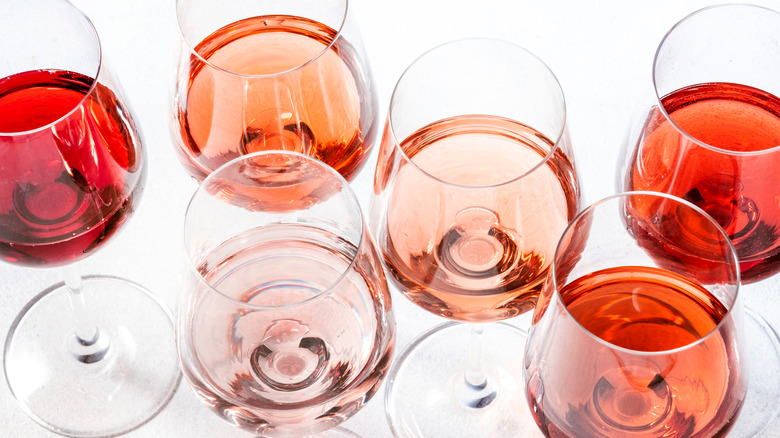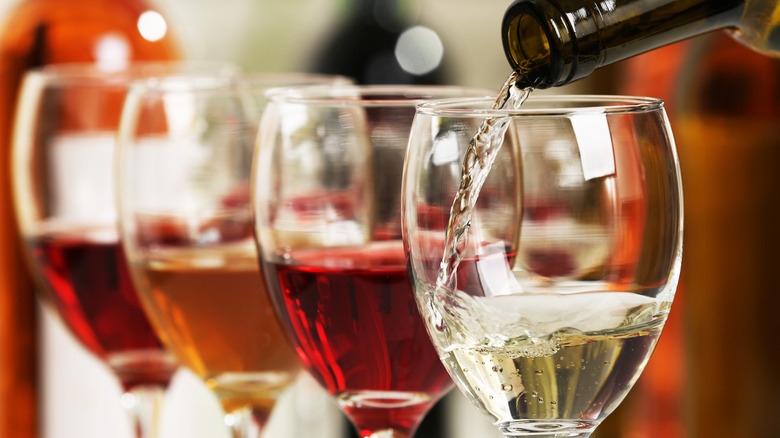Researchers May Have Found What Actually Causes Wine Headaches
If you enjoy drinking wine, you may have experienced the onset of a headache just after one glass and wondered why. Although it can be easy to assume that overindulging is the culprit, this reasoning doesn't quite explain why, for some, a headache can occur after enjoying a glass at dinner.
The cause of headaches from drinking wine may have to do with the ingredients, such as the additives. Sulfites get a bad rap but interestingly enough, sulfites are a naturally occurring compound found in a variety of foods, including eggs and tea, according to Food & Wine. Sulfites are used to help keep food fresh and have been used in wine production for centuries to reduce spoilage and to maintain the color of the wine, according to the outlet. Yes, you read that right. Sulfites help bring out the red and ensure white wines don't turn brown — and don't typically trigger headaches but rather hives, according to Healthline.
Not only that, but the majority of people don't have an allergic reaction to sulfites, with only around one in a hundred people experiencing allergies, according to Food & Wine. Many wine industry experts know sulfites don't cause headaches but there are questions around sulfur dioxide (SO2), per SevenFifty. Yet, a recent research paper by Sophie Parker-Thomson from the Institute of Masters of Wine has shown there may be something else entirely that could be provoking those unwanted headaches.
Natural compounds may be the cause
Biogenic amines (BAs), a naturally occurring compound, are likely the reason that headaches occur after drinking wine. One type of biogenic amines — histamines — are found in fermented foods and drinks, via SevenFifty.
Many people assume that natural wine is cleaner and safer because these wines are considered to have very little to no sulfur dioxide incorporated, via SevenFifty. As Sophie Parker-Thomson explains in her paper, "[SO2 is] a very moderate amount, added right at the start of fermentation, which will ensure that they [winemakers] can do ... winemaking techniques [like skin contact and natural fermentation], but not risk toxic levels of BAs and consequent adverse health impacts in consumers."
Although it can be easy to assume wine is healthier based strictly on if it's considered a natural wine or how it's made, it's not that straightforward. Chris Brockway of Broc Cellars in Berkeley, California told SevenFifty, "I've never looked at low/no sulfur in terms of health benefits." "To me it's always been more about having wines that are alive." And for him, whether a wine is "healthy" is all about the grapes. "The health benefits have more to do with how the grapes are grown, whether it's organic or biodynamic."
Surely, this new research will spark more conversation about wines and health and what really causes headaches. One thing is clear — attempting to label wines as healthy or not healthy solely by their ingredients is not doing anyone any favors.

